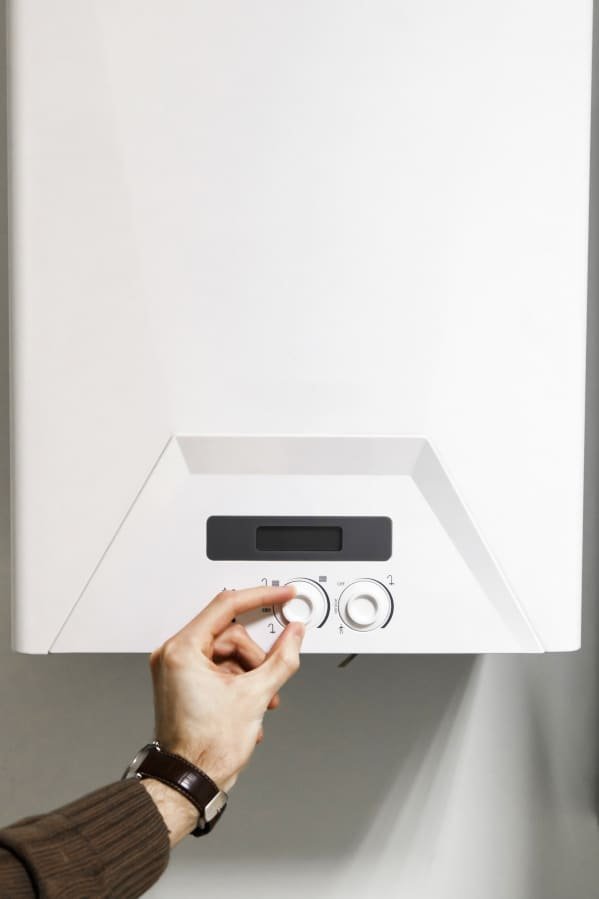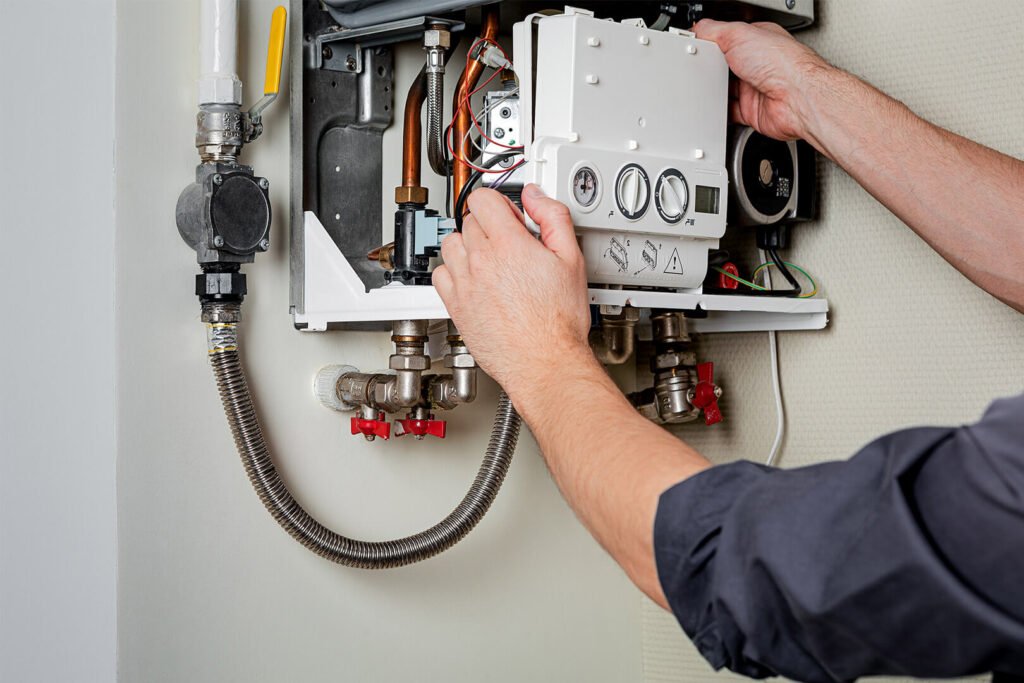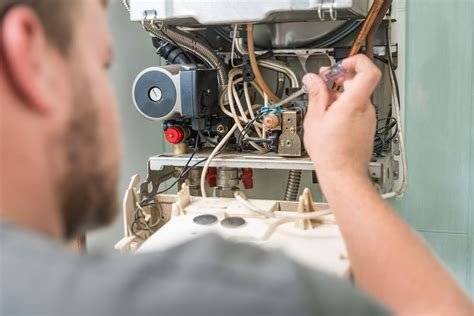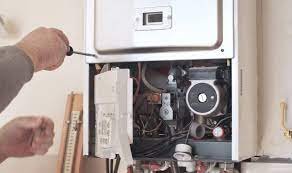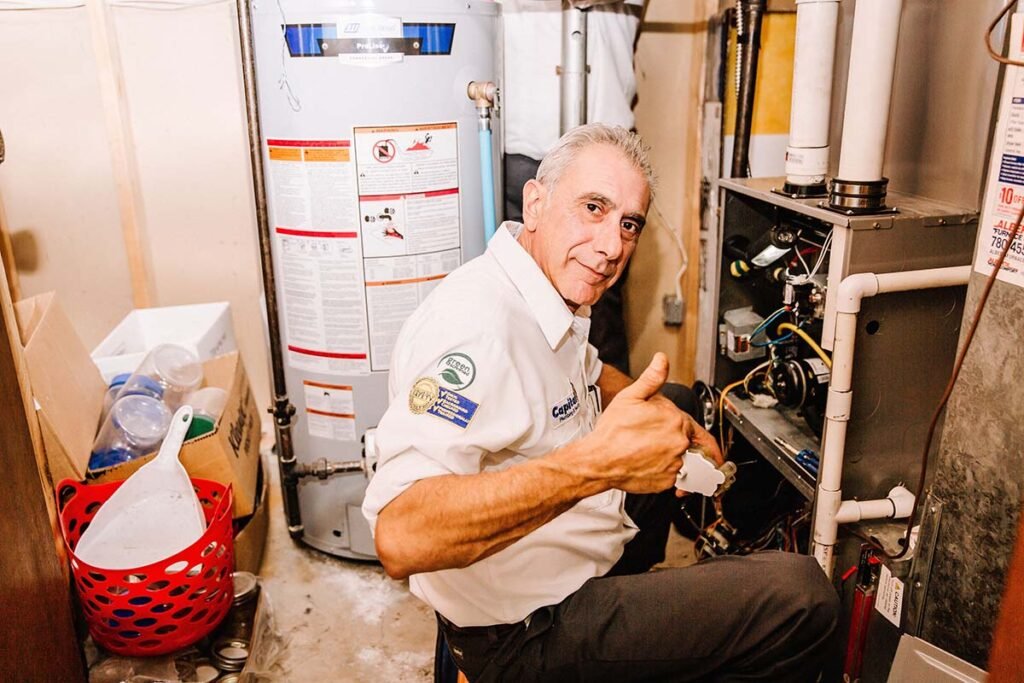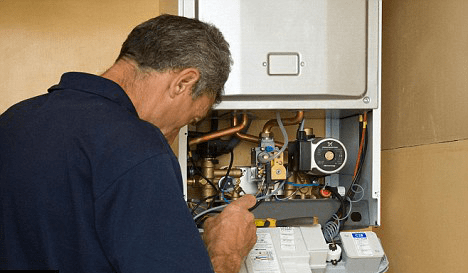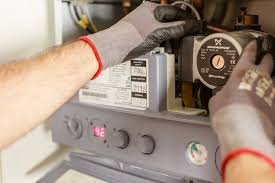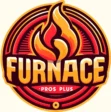Furnace Installation Bretona - Your Trusted Heating Experts
Furnace Pros Plus is your trusted partner for all your heating needs. With years of experience, we focus on providing superior heating solutions to keep your home warm and comfortable. Our team of experienced professionals devote themselves to offering professional heater setup, upkeep, and repair services. We understand the importance of a properly operating heater, particularly throughout the chillier months. We prioritize efficiency, price, and customer satisfaction in every task (big or little). Whether you require a new heater, a regular check-up, or emergency repairs, depend on Furnace Pros Plus for trustworthy and efficient heating services that ensure peace of mind and convenience.
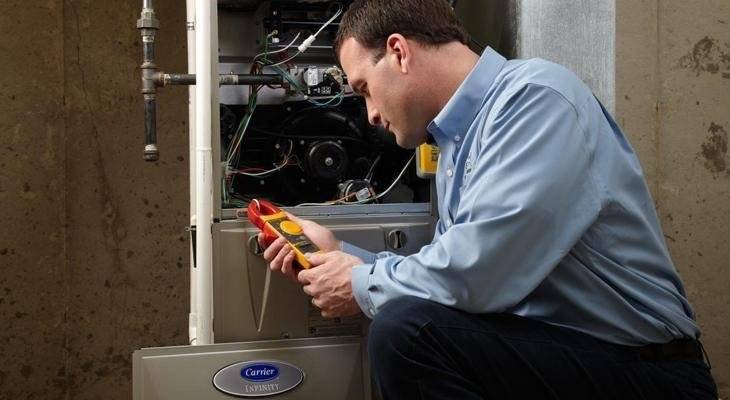
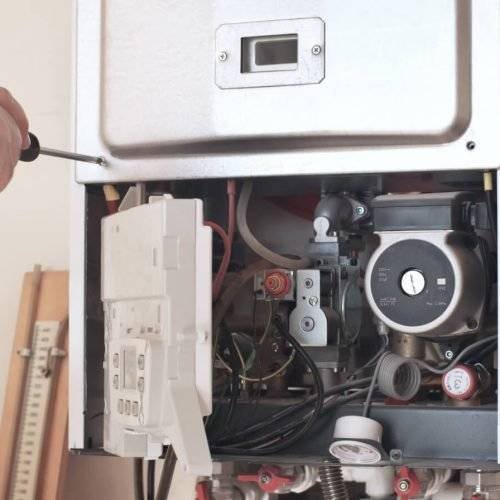
Who Are We?
Residential Heating Installations & Repairs
Furnace Pros Plus stands apart as the leading heater installation and repair company in Bretona, Alberta, thanks to its unequaled devotion to quality, customer support, and knowledge. With years of experience in the heating and cooling market, Furnace Pros Plus has earned a reputation for providing trusted and efficient services tailored to the distinct environment and needs of Bretona residents.
The business’s commitment to quality starts with its team of certified experts. Each furnace technician is not just extremely proficient and well-informed about the most recent heater technology but also committed to continuous training and advancement. This makes sure that every setup or repair is performed with the utmost precision and current strategies, guaranteeing exceptional performance and longevity of your heater.
Furnace Pros Plus understands the importance of a well-functioning heater, particularly throughout the severe Bretona winter seasons. That’s why they provide a fast response to ensure that any heater emergency is dealt with quickly and efficiently, minimizing discomfort and prospective dangers. Their 24/7 accessibility is a testament to their devotion to customer satisfaction and security.
Additionally, Furnace Pros Plus makes use of just the highest quality products and materials in all their installations and repairs. By partnering with leading manufacturers, they ensure that every element of your heating unit is durable and efficient, offering ideal heating and decreasing energy costs. This commitment to quality, extends the life of the heater, offering more value for the financial investment.
In addition to their technical knowledge, Furnace Pros Plus excels in customer support. They prioritize clear interaction, offering detailed consultations and transparent pricing without concealed costs. Their tailored approach suggests that every service is tailored to the particular needs and spending plan of their customers, making sure that you feel valued and pleased with every interaction.
For these factors and more, Furnace Pros Plus is the leading option for homeowners requiring heater setup and repair services in Bretona, demonstrating an unsurpassable mix of quality, knowledge, and customer-focused service.
How can we help you?
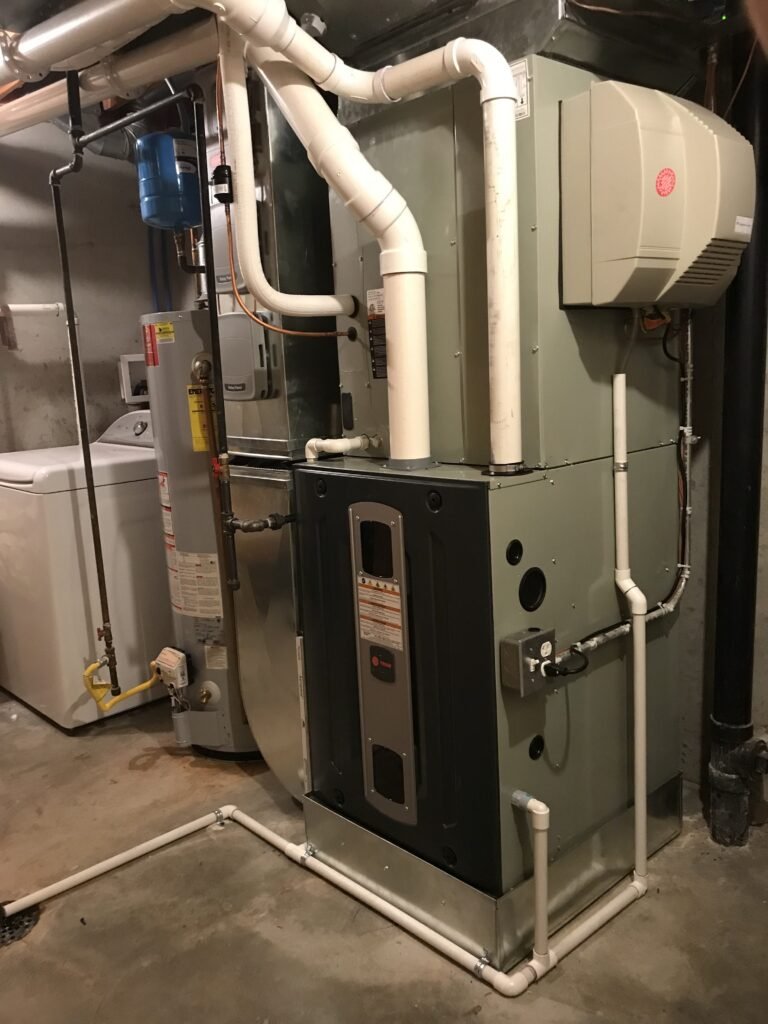
Understanding the Cost of Installing a New Furnace
Intro
A functioning heater is important when it pertains to maintaining a comfortable and warm home throughout the chillier months. Nevertheless, there comes a time when setting up a new heater is inevitable.
Understanding the costs involved in this procedure is crucial for house owners to plan and spending plan appropriately. This thorough guide explores the numerous elements influencing the expense of setting up a new heater.
Factors Affecting Heating System Installation Expenses
Kind of Heater:
- Gas Heaters: Popular for their efficiency, they typically cost more upfront but provide lower operating expense.
- Electric Furnaces: They are less costly than gas heaters. Nevertheless, electric designs tend to have higher functional costs due to electrical energy rates.
- Oil Heating systems: These are less typical and can be more expensive due to the expense of oil.
Heating System Size and Capacity
- Square Footage: The size of your home directly impacts the capability required for the heater.
- BTU Ranking: Higher BTU ratings equate to more effective heaters, which can increase the expense.
Effectiveness Rankings
Yearly Fuel Utilization Effectiveness (AFUE):
Higher AFUE ratings imply better efficiency but also featured a higher price.
Brand and Quality
Top-tier brands often command higher rates due to their credibility for quality and longevity.
Installation Complexity
- Existing System: Upgrading from an old system may require extra work and expense.
- Ductwork: The condition and design of existing ductwork can impact setup complexity.
- Accessibility: Tough access to the setup website can increase labour costs.
Labour Expenses
Labour costs differ by area. In addition, the complexity of the setup can affect labour costs.
Extra Expenses to Consider
- Permits: Some regions require authorizations for heater setup.
- Inspections: City bylaws may require post-installation inspections for security compliance.
- Thermostats: Upgrading to a wise thermostat can sustain extra costs.
Average Cost of Heating System Replacement
While rates can differ widely based on the elements mentioned above, here are some average expense ranges for heater setup:
- Gas Heating systems: $2,000 to $5,000.
- Electric Furnaces: $1,000 to $2,500.
- Oil Heating systems: $2,500 to $6,000.
These are rough estimates and can differ based on particular home requirements.
Cost-Saving Tips.
Research and Compare.
Get numerous quotes from various professionals to ensure competitive pricing.
Seek Refunds and Incentives.
Search for energy efficiency rebates offered by utility business or federal government programs.
Consider Long-Term Savings.
Investing in a more efficient heater can lower energy expenses gradually.
Conclusion
Installing a new heater is a significant financial investment, and understanding the costs involved is important for any house owner. By considering the type of heater, setup complexity, labour costs, and extra expenses, house owners can better prepare for this essential upgrade. Remember to seek numerous quotes, explore readily available rebates, and consider long-lasting energy savings when choosing.
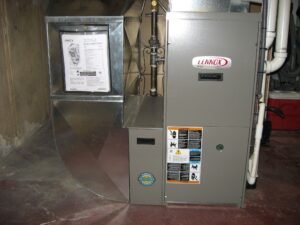
The Right Size Heating System for Your Home: A Comprehensive Overview
Intro
Selecting the right size heater for your home is crucial for making sure efficient heating and convenience throughout the chillier months. A furnace that’s too little will not keep your house warm, while one that’s too large can cause unnecessary energy usage and irregular heating. This guide will assist you identify the perfect heater size for your home.
Understanding Heating System Sizing: BTU and Effectiveness
We determine the size of a heating system in British Thermal Systems (BTU). One BTU is the energy required to raise the temperature of one pound of water by one degree Fahrenheit. When selecting a heating system, 2 essential elements contribute: the BTU score, showing the heater’s heating capability, and its efficiency score, measured in Yearly Fuel Utilization Effectiveness (AFUE).
Computing Your Home’s Heating Requirements
You should calculate your home’s heating needs to identify the appropriate heater size. The computation thinks about elements like square video footage, environment zone, insulation quality, window type, and house design. Normally, you require approximately 30-60 BTUs per square foot. Nevertheless, this varies based on your home’s particular qualities.
Climate Zone and Its Influence On Heating System Size
Your geographical place substantially influences the heater size required. Houses in chillier areas, such as [place], require more BTUs per square foot than those in milder environments. Seek advice from a heating specialist for particular suggestions.
The Role of Home Insulation in Heating System Sizing
Excellent insulation minimizes the quantity of heat loss, implying you can select a smaller sized heater. Examine your home’s insulation in the walls, attic, and windows. Upgrading insulation can be a cost-effective method to lower heating needs.
Considerations for Various Types of Heaters
There are numerous types of heaters, like gas, electric, and oil. Each type has distinct sizing factors to consider. Gas heaters prevail and efficient, electric heaters are more uncomplicated and much safer but often more expensive to run, and professionals set up oil heaters where natural gas isn’t readily available.
Importance of Professional Heating And Cooling Evaluation
A professional heating and cooling assessment is important. Professionals consider all variables, consisting of ductwork and home design, to advise the ideal heater size. They can carry out a Manual J computation, the market requirement for determining heating and cooling loads.
Energy Effectiveness and Cost-Effectiveness
Selecting a heating system with a high AFUE score is crucial for energy efficiency and expense savings. Modern heaters have AFUE ratings in between 80% and 98%, showing the percentage of fuel converted into heating. While high-efficiency heaters are more expensive upfront, they can cause considerable savings in the long run.
Dealing With Common Misconceptions About Heating System Sizing
A typical misconception is that a larger heater is always better. Nevertheless, a large heater can cause brief cycling, where the heater regularly switches on and off, decreasing efficiency and life expectancy. Conversely, an undersized heater struggles to heat your home properly.
Long-Term Benefits of the Right-Sized Heater
Picking the right-sized heater has long-lasting advantages, consisting of constant convenience, lower energy expenses, lowered carbon footprint, and fewer upkeep problems. It’s a balance in between upfront costs and long-lasting savings.
Conclusion: Making an Informed Choice
Selecting the right size heater is a choice that impacts your home’s convenience and energy efficiency for several years to come. By understanding the essentials of heater sizing and looking for professional assistance, you can make an educated decision that makes sure ideal heating for your home.
Remember, the secret to an efficient and comfortable home depend on selecting the right heater and regular upkeep and considering other elements like insulation and environment. With this thorough guide, you are well-equipped to choose the perfect heater for your home, offering heat and convenience for lots of winter seasons.

Replace vs Repair Heating System: A Far-reaching Overview
Intro
Choosing whether to change or repair your heater is a significant decision for any house owner. The option impacts your immediate convenience and security and has long-lasting monetary implications. This thorough guide will explore numerous elements to consider, helping you make a notified decision.
Understanding Your Heater
Life-span and Types
Heating systems typically have a lifespan of 15-20 years. The two main types are gas and electric, each with various upkeep and functional costs.
Signs of Problems
Common signs that your heater may require attention include unusual noises, irregular heating, and increased energy expenses.
When to Consider Fixing Your Heating System
Repair is often the very best option for small problems or heaters that are reasonably new and still under guarantee.
Cost-Effectiveness
Fixing can be more affordable for small problems. Nevertheless, frequent repairs may show a deeper issue.
Environmental Effect
Repair work often have a lower ecological impact than replacing the whole unit.
When Replacement is the Very Best Alternative
You must consider replacement if your heater is near completion of its life expectancy, repairs are ending up being significantly expensive, or if it could be more energy efficient.
Long-lasting Cost Savings
While the preliminary expense is higher, a new heater can be more energy-efficient, conserving you cash on energy expenses.
Technological Developments
More recent designs come with advanced technology, such as clever thermostats, which provide better temperature control and efficiency.
Weighing Your Alternatives
Cost Analysis
Compare the expense of repairs gradually versus the one-time expenditure of a new heater.
Energy Effectiveness
Examine how your existing heater’s efficiency is impacting your energy expenses.
Home Worth
Consider how a new heater may increase the value of your home, particularly if you prepare to sell in the future.
Professional Advice
Looking For Expert Viewpoint
Talk to HVAC experts to examine the state of your existing heater and get estimates for repair and replacement.
Importance of Routine Maintenance
Routine upkeep can extend the life of your heater, whether you decide to repair or change it.
Conclusion
In conclusion, choosing to repair or change your heater depends upon numerous elements, consisting of age, condition, expense, and energy efficiency. By considering these elements and looking for professional recommendations, you can decide that makes sure convenience, security, and monetary prudence for your home.
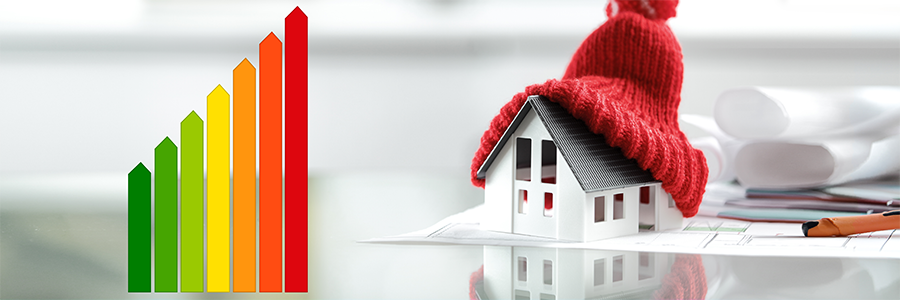
What Season is the Most Affordable to Replace Your Heating System?
Will a Modern Energy-Efficient Heating System Reduce Your House Insurance?
Intro
Home upkeep can be a significant financial investment, particularly when it involves crucial systems like heating. Among the most substantial costs house owners face is replacing their heater. Nevertheless, timing this replacement can cause considerable savings. This post explores the very best time of year to change your heater, considering cost-effectiveness and functionality.
Understanding Heating System Replacements
The Requirement for Replacement
Before diving into timing, it’s important to understand why and when you must change your heater. Common indicators include frequent repairs, heating inadequacy, and the unit’s age (typically beyond 15-20 years). Changing an out-of-date or malfunctioning heater enhances heating efficiency and makes sure security and convenience throughout chillier months.
Factors Affecting Heating System Prices
A number of elements impact heater rates, consisting of the type of heater, brand name, capability, and the complexity of setup. Seasonal demand is another considerable factor, often neglected, yet it plays an important role in determining the expense.
Finest Time for Replacement: Off-Season
Why Select Off-Season?
The off-season, primarily spring and early fall, is generally the most inexpensive to change a heating system. The demand for heating systems is lower throughout these durations than throughout the peak winter season. Lower demand often results in more competitive pricing from manufacturers and installers.
Benefits of Off-Season Replacement
- Lower Expenses: Lowered demand can cause discount rates and more consumer working out power.
- Accessibility of Technicians: heating and cooling professionals are less busy throughout these times, making sure more versatile scheduling and quicker setup.
- Sufficient Time for Research: The off-season offers house owners adequate time to research study various heater designs and options without the pressure of immediate requirement.
Planning Ahead
Making use of the off-season needs preparation. Prepare for the requirement for replacement and schedule it when the demand is low. This foresight saves cash and avoids the trouble of a heating system breaking down in the middle of winter.
Winter season: The Peak Season
Obstacles of Winter Season Replacement
- Higher Prices: The demand for heater setup and repair peaks throughout winter, causing higher rates.
- Hectic Schedules: Finding a service technician might be more difficult, and you may have to wait longer for a visit.
- Emergency Replacements: If your heater breaks down in winter, you may have to select an immediate replacement, which leaves little room for expense comparison or negotiation.
Other Considerations
Energy Effectiveness and Rebates
Investing in energy-efficient designs might be more expensive upfront but can cause long-lasting savings. Also, keep an eye out for rebates and tax credits offered for energy-efficient home enhancements.
Importance of Routine Maintenance
Routine upkeep can extend the life of your heater, postponing the requirement for replacement. It’s a necessary aspect of home care that you must take note of.
Conclusion
Timing your heater replacement can cause considerable savings. The off-season, particularly spring and early fall, is typically the most affordable duration for this financial investment. Planning, considering energy efficiency, and maintaining your existing heater can optimize expenses and ensure a warm, comfortable home.
Intro
Homeowners often contemplate whether updating their home appliances and systems can cause savings on their home insurance premiums. One typical concern is whether setting up a new heater reduces home insurance costs. This post explores how a new heater setup may affect your home insurance, providing insights into insurance policies, danger management, and prospective savings.
Understanding House Insurance Premiums
Before diving into the specifics of heaters and insurance, it’s crucial to understand what elements affect home insurance premiums. Insurer examine numerous elements, consisting of:
- Residential Or Commercial Property Age and Condition: Insurance Agents view newer homes with upgraded systems as lower dangers.
- Location: Geographical place and local environment can substantially impact insurance rates.
- Safety Features: The presence of alarms, smoke alarm, and other security gadgets can lower premiums.
The Effect of a New Heating System on House Insurance
Installing a new heater in your home can have a number of implications for your home insurance:
- Lowered Threat of Fire and Gas Leakages: Modern heaters with advanced security functions reduce dangers like fire or gas leakages. This danger reduction can be favourable in the eyes of insurance suppliers.
- Improved Energy Effectiveness: Newer heaters are often more energy-efficient, causing lower utility costs and a reduced ecological footprint, indirectly affecting insurance factors to consider.
- Boosted Home Worth: Upgrading to a new heater can increase your home’s market price, which may impact the coverage you require.
Prospective Insurance Discounts
Some insurance companies provide discount rates for home enhancements that lower danger. These may include:
- Protective Device Discounts: You may get approved for a discount rate if your new heater contains advanced security functions.
- Green House Discounts: Some insurance companies supply unique discount rates for setting up energy-efficient home appliances.
Documentation and Appraisal
To utilize a new heater setup for insurance advantages, consider the following:
- Professional Installation: Guarantee a licensed professional installs your heater, which can be a requirement for insurance advantages.
- Keep Records: Preserve all invoices and documents for the heater purchase and setup.
- Notify Your Insurance Provider: Alert your insurance provider about the upgrade. They may require an evaluation or extra documents.
Considerations Before Upgrading
While a new heater can provide advantages, consider the following:
- Cost vs. Advantage Analysis: Examine if the long-lasting savings on insurance and energy expenses validate the preliminary expense of a new heater.
- Insurance Plan Review: Consult with your insurance agent to understand how a new heater may specifically affect your policy.
Conclusion
Upgrading to a new heater can lower your home insurance premiums by decreasing danger and boosting your home’s security and efficiency. Nevertheless, the impact varies based on individual insurance policies and the particular functions of the heater. It’s recommended to talk to your insurance provider to understand the complete advantages and implications of a new heater setup.
Frequently asked questions
Q: How much can I save money on my home insurance by setting up a new heater?
A: Cost savings differ based on the insurance provider and the particular functions of the new heater. Talk to your insurance agent for detailed information.
Q: Are there any particular types of heaters that are more favourable for insurance discount rates?
A: Heating systems with advanced security functions, high energy efficiency ratings, and those that fulfill particular ecological requirements are often more favourable.
How to Get ready for a Heater Installation
Installing a new heater in your home is a significant financial investment and a necessary upgrade to your home. It improves the convenience of your home and enhances energy efficiency. Correct setup preparation is crucial to ensure the setup procedure is smooth and worry-free. This post will guide you through the essential steps to prepare for a heating system setup.
Understanding Your Heating Requirements
Examining Your Space: The initial step is to examine the size of your space and understand the heating requirements. A too-large or too-small heater for your home can cause inadequacy and higher energy costs. Consulting with a heating professional to identify the right heater size is essential.
Selecting the Right Heating System: There are numerous heaters, consisting of gas, electric, and oil. Each has advantages and disadvantages; the option depends upon your place, spending plan, and personal choice. Research and talk to specialists to make a notified decision.
Pre-Installation Preparation
Picking a Certified Installer: We can not overstate the importance of choosing a certified and experienced installer. Search for experts with great reviews and correct certification. They will ensure a proper setup and guide you through the procedure.
Cleaning the Area: Guarantee the area where you prepare to set up the heater is clear of any clutter. A tidy area offers easy access to the setup team and speeds up the procedure. Remove any important or delicate items from the area to prevent accidental damage.
Getting ready for Downtime: Depending on the complexity of the setup, your heater may be down for a few hours to a day. Plan appropriately, particularly if the setup is throughout chillier months.
Throughout Installation
Access to Your Home: Guarantee the installers have easy access to your home, that includes making sure that parking is readily available and a clear course to the heater place.
Interaction: Stay readily available to answer any concerns the installers may have. Clear interaction can assist deal with any problems rapidly and ensure your setup goes as prepared.
Post-Installation Checks
Inspect the Setup: Once the setup is total, examine the deal with the installer. Guarantee that the setup is total and that the area is clean.
Understanding the System: Have the installer discuss the performance of the new heater, consisting of how to change filters and the basic troubleshooting steps.
Service warranty and Documentation: Ensure you receive all essential documents, consisting of guarantee information and running manuals. Keep these files in a safe place for future recommendation.
Conclusion
Getting ready for a heating system setup involves understanding your heating needs, selecting the right heater, and choosing a certified installer. By following these steps, you can ensure a problem-free setup procedure and take pleasure in the convenience and efficiency of your new heater for several years to come. Remember, a little preparation goes a long way in making sure a smooth and successful heater setup.
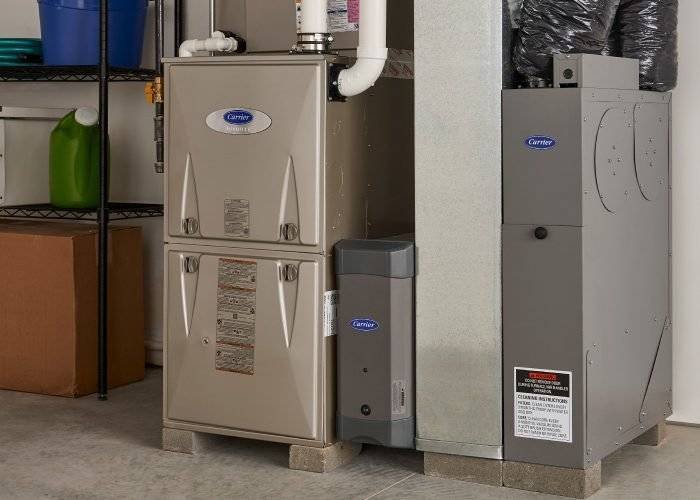
Our Work


